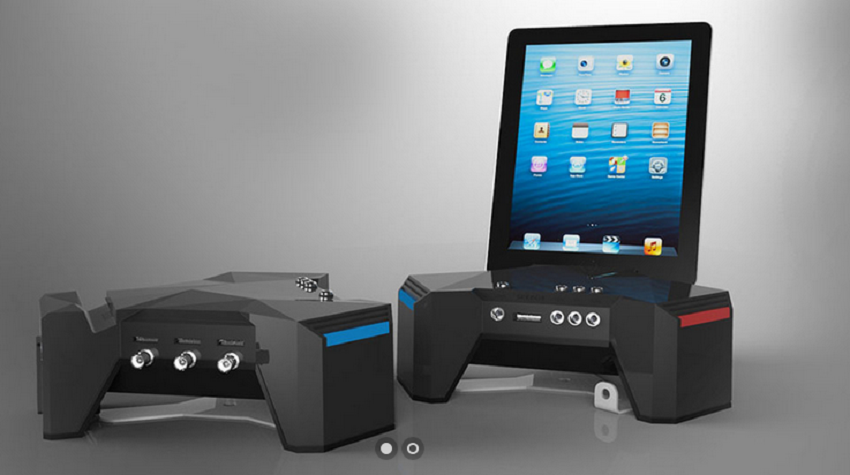SeeBox, an interactive game console that helps learners understand the fundamental concepts of electronics and engineering, is looking for ZAR5 million (US$378,000) in funding in order to go into mass production.
Having raised partial seed funding from South Africa’s Industrial Development Corporation, a prototype for the SeeBox was completed early this year, with founder Johann Kok telling Disrupt Africa he was now looking for funding for a full rollout.
Kok is in discussions with investors over obtaining the necessary funding, while the company has also launched an Indiegogo campaign in a bid to raise US$60,000. People are invited to contribute varying amounts of money to sponsor or co-sponsor the delivery of a SeeBox to a school.
The aim of the SeeBox is to allow children to enjoy a practical and experimental way of learning the sciences and electronics, allowing children to learn first-hand the principles of science and electronics by building, measuring and experimenting.
It engages children with short animated videos, and the allows them to put knowledge into practice with experiments on real playboards and game play. The SeeBox keeps track of a learner’s progress as they go.
Kok, who studied electronic engineering and worked at the University of Technology before launching his own electronic desk equipment importing business, said through his experiences working with and within universities he had seen a need for a specific product that could train engineers.
“At the same time my son was born and I got a different perspective,” he said. “When I was young, my father worked at the municipality, and I had access to it and could take stuff apart. I began thinking how I could reproduce that exposure that I had, because it played a key role in me becoming an engineer. How could I reproduce that exposure on a big scale to people from all sorts of backgrounds.”
The SeeBox was eventually conceived and a prototype built, with Kok saying the selling point is that it makes engineering education practical and reproducible, while also monitoring a child’s progress. He said it was a departure from traditional electronics kits, where people follow steps and put something together.
“That is great, I’ve also built a lot of these kits. But the limitation is that there is no intelligence monitoring what the child is doing, and you can assemble the kit without understanding the core principles of how a diode works, or what voltage is,” he said.
“I want to teach kids the basic principles one by one, instead of just jumping to the wow factor. The SeeBox takes the child through the basics.”
Kok said the SeeBox approach ensures a child builds up their knowledge of central concepts, and measures their progress.
“What it does that no other product does is that it is all-encompassing measuring tool. It measures what the child is doing on their experimentation board,” he said.
Funding is now necessary to put the SeeBox into mass production, while Kok also needs to develop further experiments and more videos.
“That’s a never ending job, it’s like developing a curriculum,” he said.
In terms of a target market, Kok feels there will be demand from both institutions and parents once the SeeBox is commercially available.
“The first phase would be to approach schools with a budget to buy this, something that is over and above the curriculum. I will also approach universities and colleges,” he said.
“The phase after that would be parents. From the start I will allow parents to buy it, and I have had interest, but I’m going to put my focus into the institutions first, because I can achieve bigger growth there initially.”
Though developed in South Africa and set for initial rollout there, Kok said the SeeBox is a product that meets a universal need and will be rolled out across the world eventually.
“Even the videos have been made in such a way that they can be very easily translated. The vision is not just South Africa or even Africa, it is a global product.”


